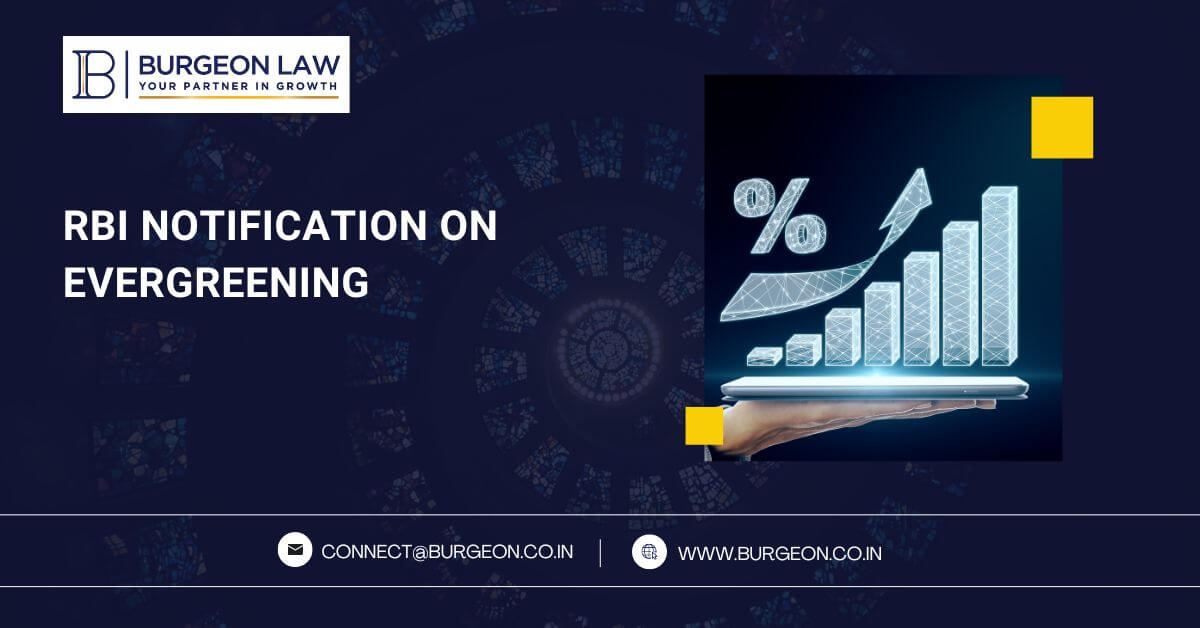Introduction
The Reserve Bank of India (“RBI”) on December 19, 2023 released a circular (RBI/2023- 24/90) (“Circular”), addressing the practice of “evergreening”. Evergreening refers to a practice where Regulated Entities (“REs”) circumvent the direct exposure to the debtor company by making investments in units of Alternative Investment Funds (“AIFs”) which in turn makes investment in such debtor company. This investment by AIF is then used by debtor company to repay the loans they received from the REs. Evergreening is typically used to mask such debt which otherwise would have become bad debt for the REs.
Details Of The Notification
The RBI through this notification prevents REs from making investments in any scheme of AIFs which has downstream investments either directly or indirectly in a debtor company of the RE. In this instance the phrase “debtor company of the Regulated Entity” covers any company to which the RE currently has or previously had a loan or investment exposure anytime during the preceding 12 months.
The notification also directs a Regulated Entity to liquidate its investment in an AIF scheme if the scheme makes a downstream investment in any debtor company. The liquidation of its investment by the RE is to be made within 30 days from either the date of such downstream investment by the AIF or the date of issuance of the Circular, whichever is earlier. The Circular further provides that, where the REs are not able to liquidate their investments within 30 days, REs will be required to make 100 per cent provision on such investments.
The notification further provides that investments by REs in the subordinated units of any AIF scheme with a ‘Priority distribution model’ shall be subject to full deduction from RE’s capital funds. Priority distribution model refers to certain schemes of AIFs which adopt a distribution waterfall in such a way that one class of investors (other than sponsor/manager) share loss more than pro rate to their holding in the AIF vis- à-vis other classes of investors/unit holders, since the latter has priority in distribution over the former.
Analysis
The circular seems to stem from the consultation paper issued by the Securities Exchange Board of India (“SEBI”) on May 19, 2023 and the investigations undertaken by SEBI which uncovered cases in tune of $1.8 billion to $2.4 billion where AIFs were found evergreening. RBI’s concern on evergreening though justified, however, seems excessive. A blanket ban on all investment, whether equity or debt, along with the requirement to exit within 30 days or in case where exit is not undertaken within 30 days, make 100% provision for the investment is likely to cause the REs to rethink their investment strategy in AIFs. It seems RBI may not be in sync with SEBI regulatory requirements which requires investment manager’s consent (AIF Category I and II) for liquidating the units, and even it is assumed that such consent is received in time, finding a buyer for such units in a short time is likely to be a challenging task. The Circular further fails to clarify its applicability where an RE is a sponsor of an AIF. The ramifications of the Circular are yet to be seen, however, this Circular will be a catalyst in RE investments drying up significantly in AIFs due to possible conflict of interest.

